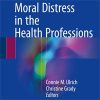Teaching the Principles of Pediatric Critical Care to Non-Intensivists in Resource Limited Settings
frontiersin.orgIt is a dismal reality of global health that the vast majority of critically ill or injured children are found in regions of the world least equipped to care for them. Most of these severely ill or injured children are cared for in clinics, hospital wards, or, when available, adult intensive care units (ICUs) by providers with variable amounts of training. This lack of training may, in fact, play a significant role in the premature demise of children <5 years old, since millions of these deaths are felt to be preventable with the resources available. Evidence shows that even in a setting with constrained resources, early recognition, and prompt, decisive intervention may reduce mortality. It seems intuitive, therefore, that training of non-intensivists that focuses on these principles might improve the outcomes in critically ill children. How can this instruction be best achieved in areas where it is most needed? In this article, we review the benefits and challenges of implementing short-term curricula to teach the basic principles and practice of critical care medicine in resource limited settings (RLS). Training in the recognition and initial management of critical illness and injury may be an effective way to save the lives of countless children in RLS. Standardized courses in the fundamentals of critical care could be an effective component of this overall effort, helping to fill in gaps of trained personnel.

















